3-Day Relaxation & Culinary Delights Itinerary for Couples in Punta Cana
Punta Cana, Dominican Republic
3 days
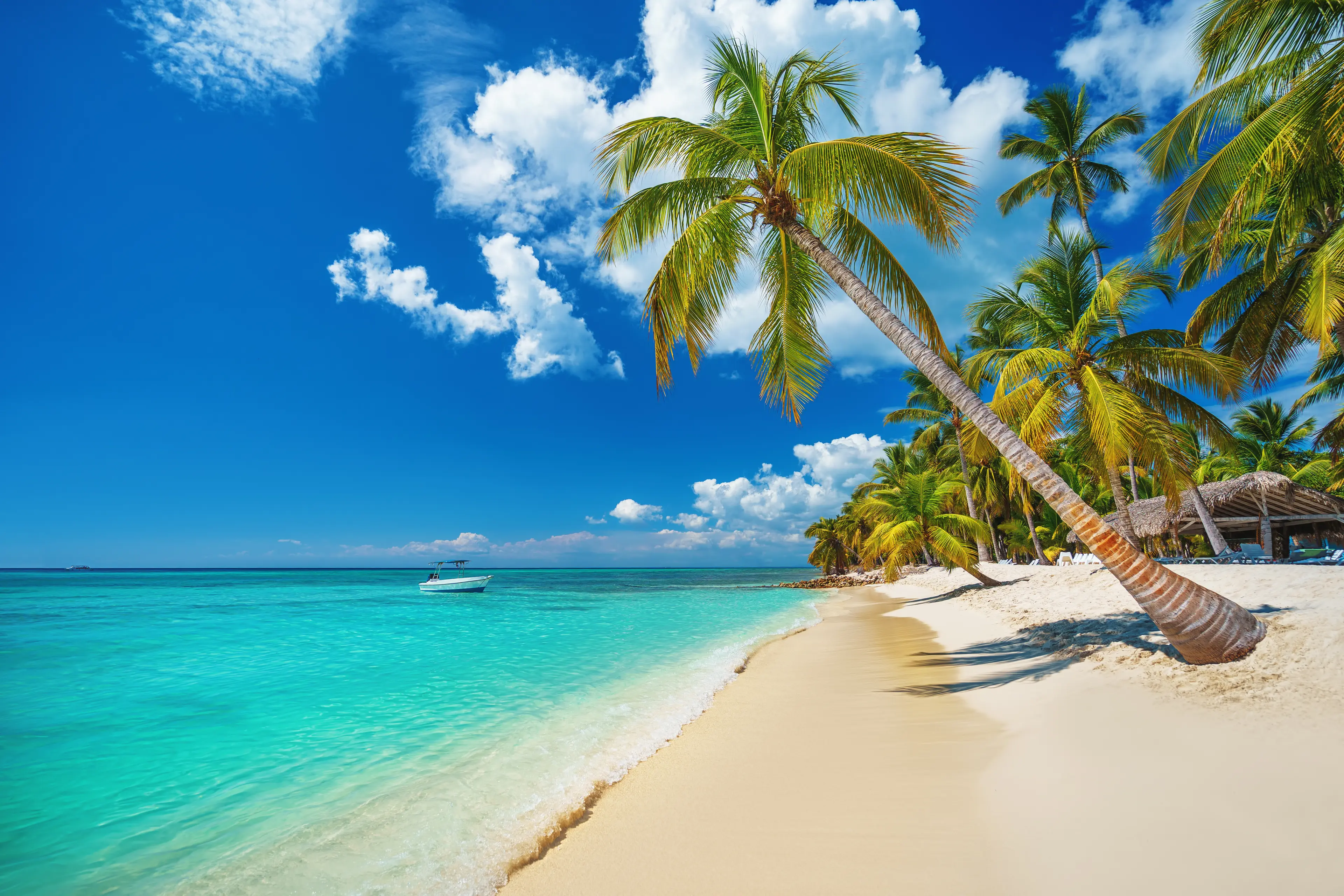
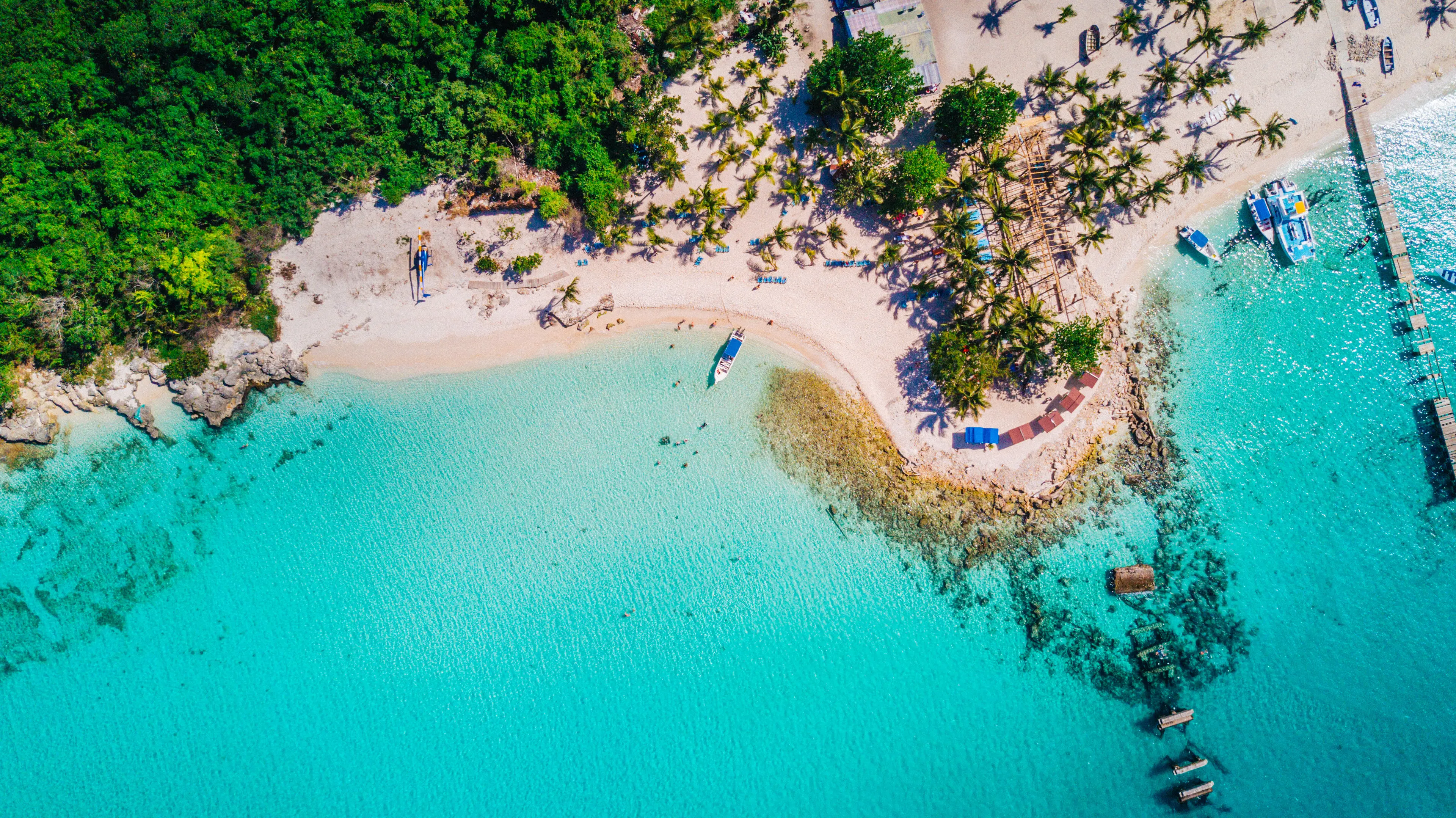

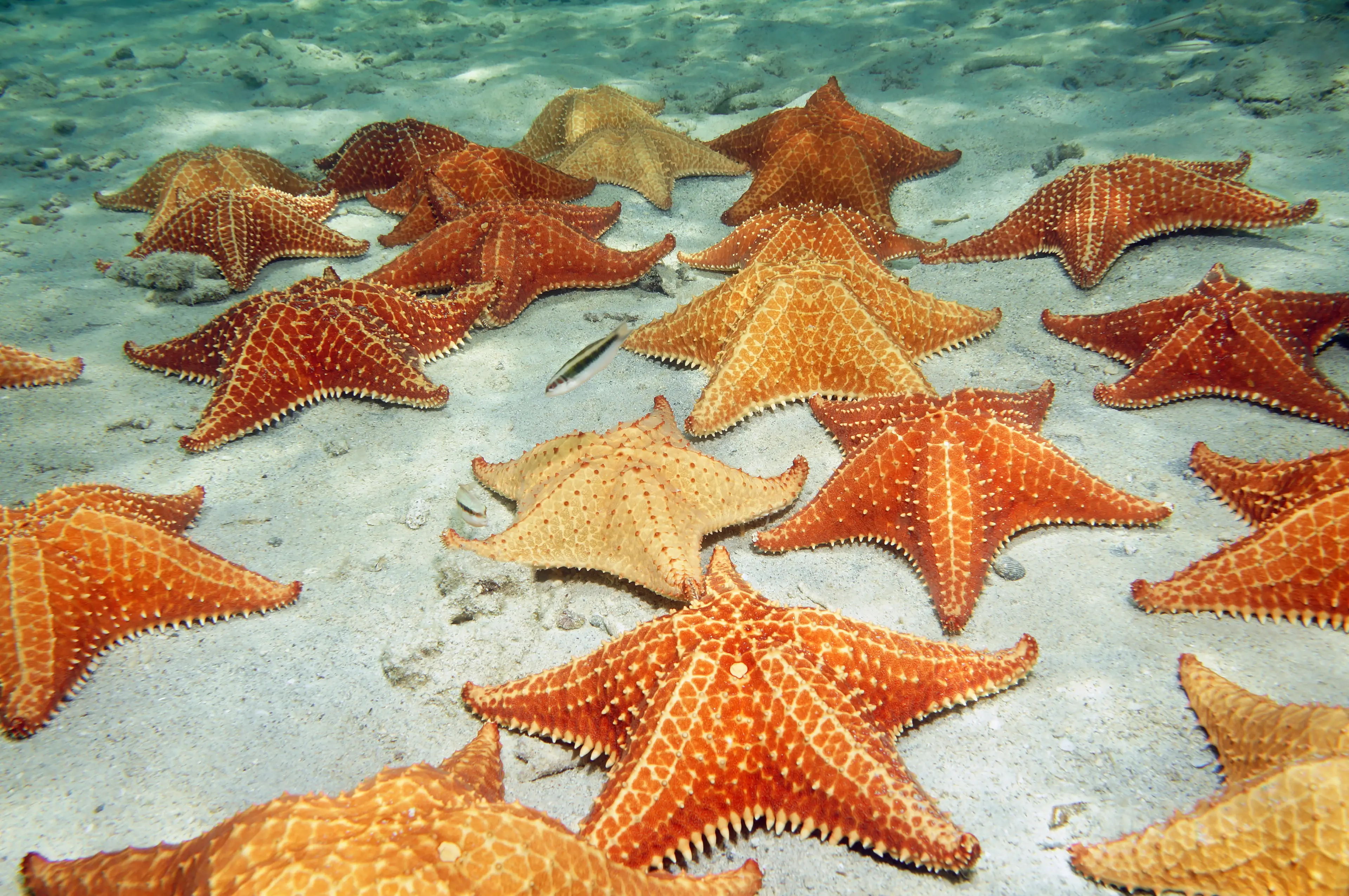
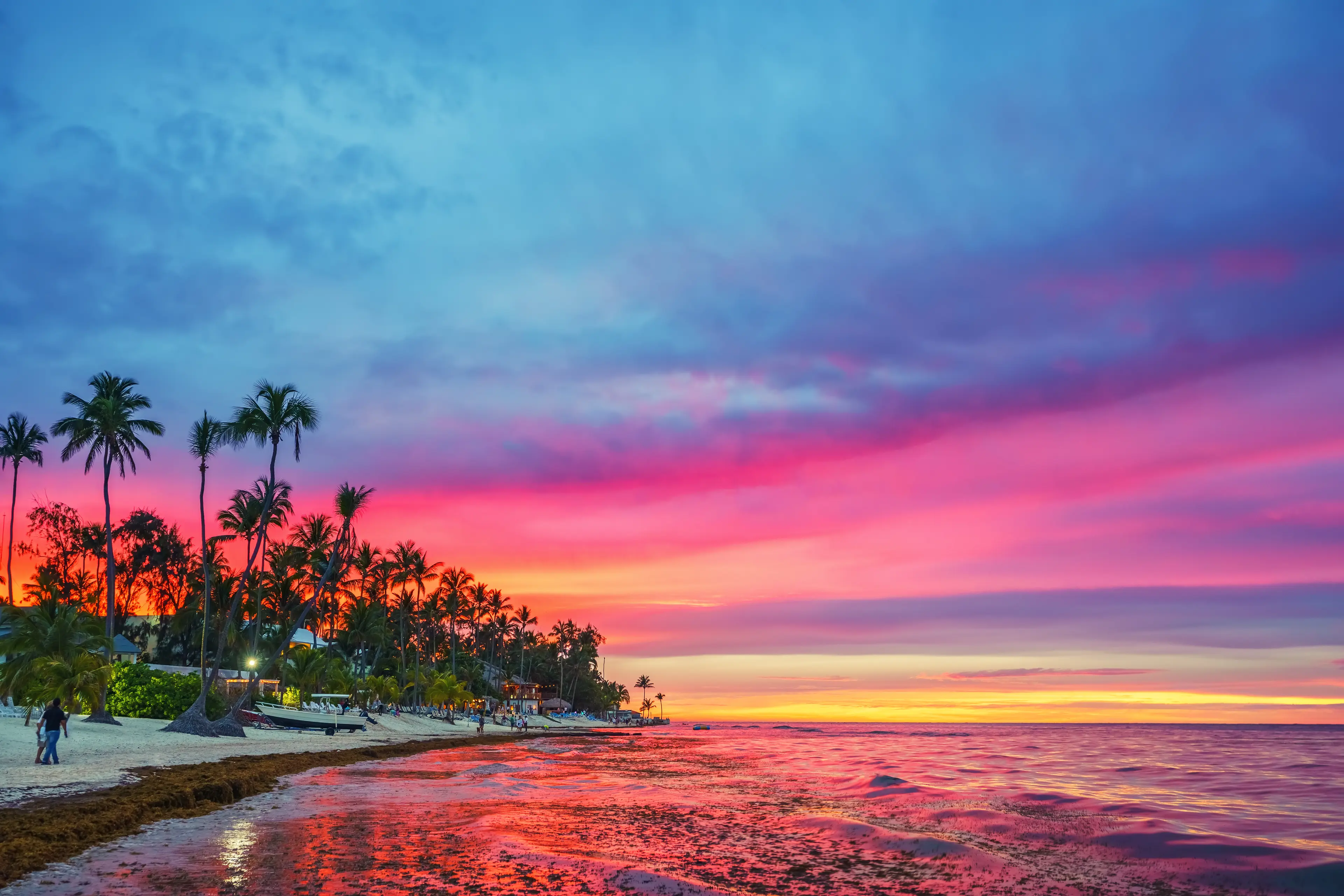
About Punta Cana, Dominican Republic
Experience the tropical paradise of Punta Cana, Dominican Republic, a haven for sun-seekers and adventure enthusiasts. This Caribbean gem boasts pristine, palm-fringed beaches with crystal-clear waters perfect for snorkeling and diving. Explore the vibrant marine life or indulge in water sports like windsurfing and kayaking. Punta Cana is not just about the beach; it's also home to world-class golf courses, luxurious resorts, and a lively nightlife. Discover the region's rich history and culture through its local cuisine, music, and art. Take a trip to the Indigenous Eyes Ecological Park or the impressive Hoyo Azul for a touch of nature. Punta Cana is a destination that offers a blend of relaxation and adventure, making it an ideal vacation spot.
3-Day Itinerary
Day 2
Marine Adventures and Cultural Experiences
Morning
Start your second day with a visit to the Marinarium, where you can snorkel with stingrays and nurse sharks in a marine park.
Lunch
Have lunch at a local restaurant. Try some Dominican street food like empanadas or chimichurris.
Afternoon
Spend your afternoon exploring the Hoyo Azul, a natural sinkhole filled with crystal clear water. Take a refreshing dip or simply enjoy the stunning views.
Dinner
Enjoy a romantic dinner at a beachfront restaurant. Try some fresh seafood or a traditional Dominican dish.
Evening
End your day with a traditional Dominican music and dance show. Enjoy the vibrant rhythms and colorful costumes of the performers.
Day 3
Exploring Nature and Local Wildlife
Morning
On your final day, visit the Punta Cana Ecological Foundation. Explore the botanical gardens and learn about the local flora and fauna.
Lunch
Have lunch at a local restaurant. Try some traditional Dominican dishes like la bandera or tostones.
Afternoon
Spend your afternoon at the Manati Park, a theme park that offers shows with dolphins and sea lions, as well as a replica of a Taino village.
Dinner
For your final dinner, enjoy a meal at a local restaurant. Try some Dominican desserts like flan or tres leches.
Evening
End your trip with a relaxing evening at your hotel. Enjoy a cocktail by the pool or take a final stroll along the beach.
Attractions in Itinerary (6)

1Bavaro Beach
One of the most popular beaches in the Dominican Republic, known for its white sand, clear waters, and abundance of water sports activities.

2Indigenous Eyes Ecological Park and Reserve
A private protected area owned and operated by the Punta Cana Ecological Foundation. The park and reserve are home to an array of endemic species, and visitors can explore numerous trails, lagoons, and exhibits.

3Marinarium
An exciting excursion that offers snorkeling, sightseeing, and the opportunity to swim with nurse sharks and stingrays.
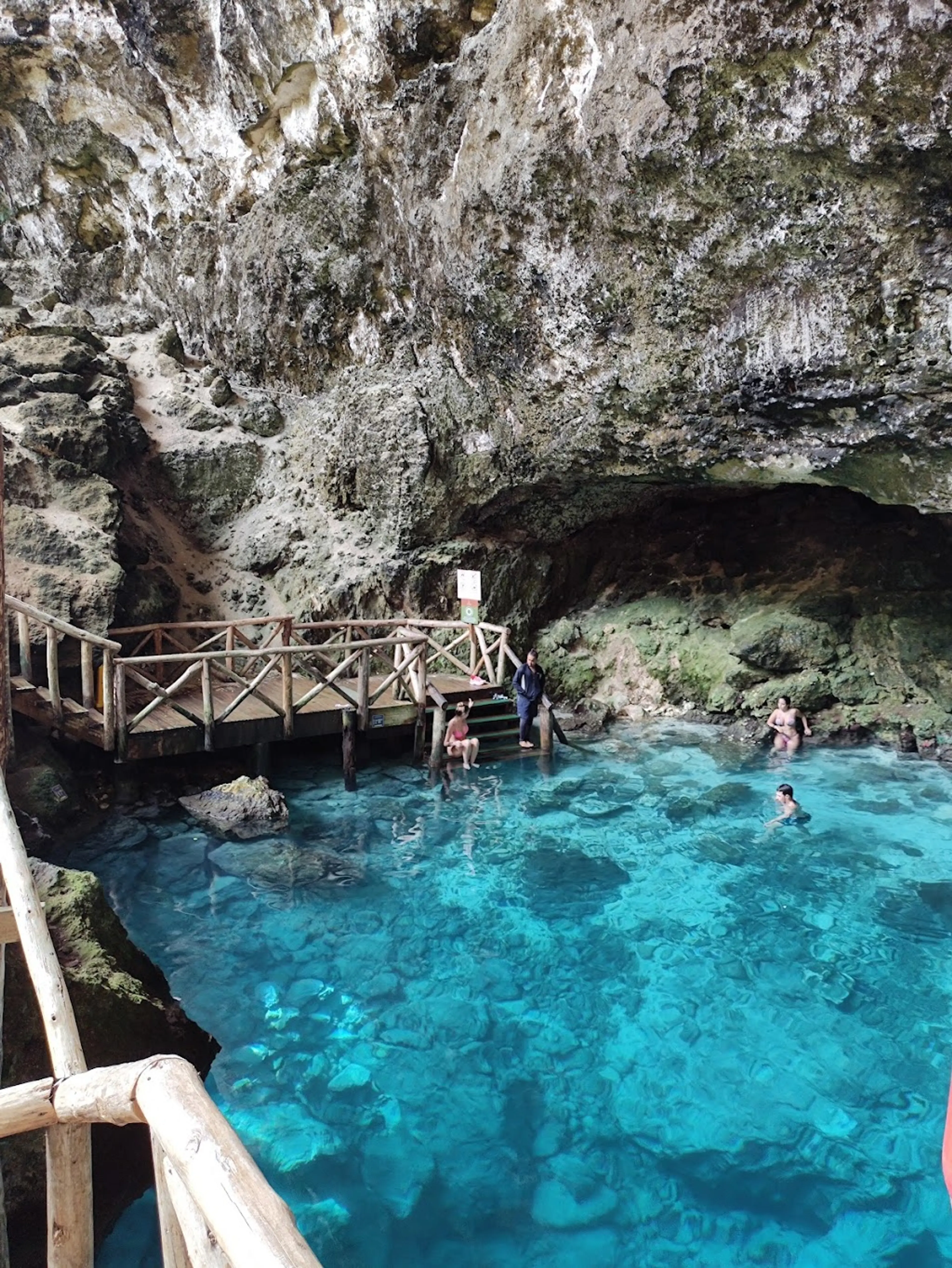
4Hoyo Azul
Hoyo Azul is a natural sinkhole filled with crystal-clear blue water. This hidden cenote, located at the foot of a 75-meter high cliff, is a popular spot for swimming and snorkeling.
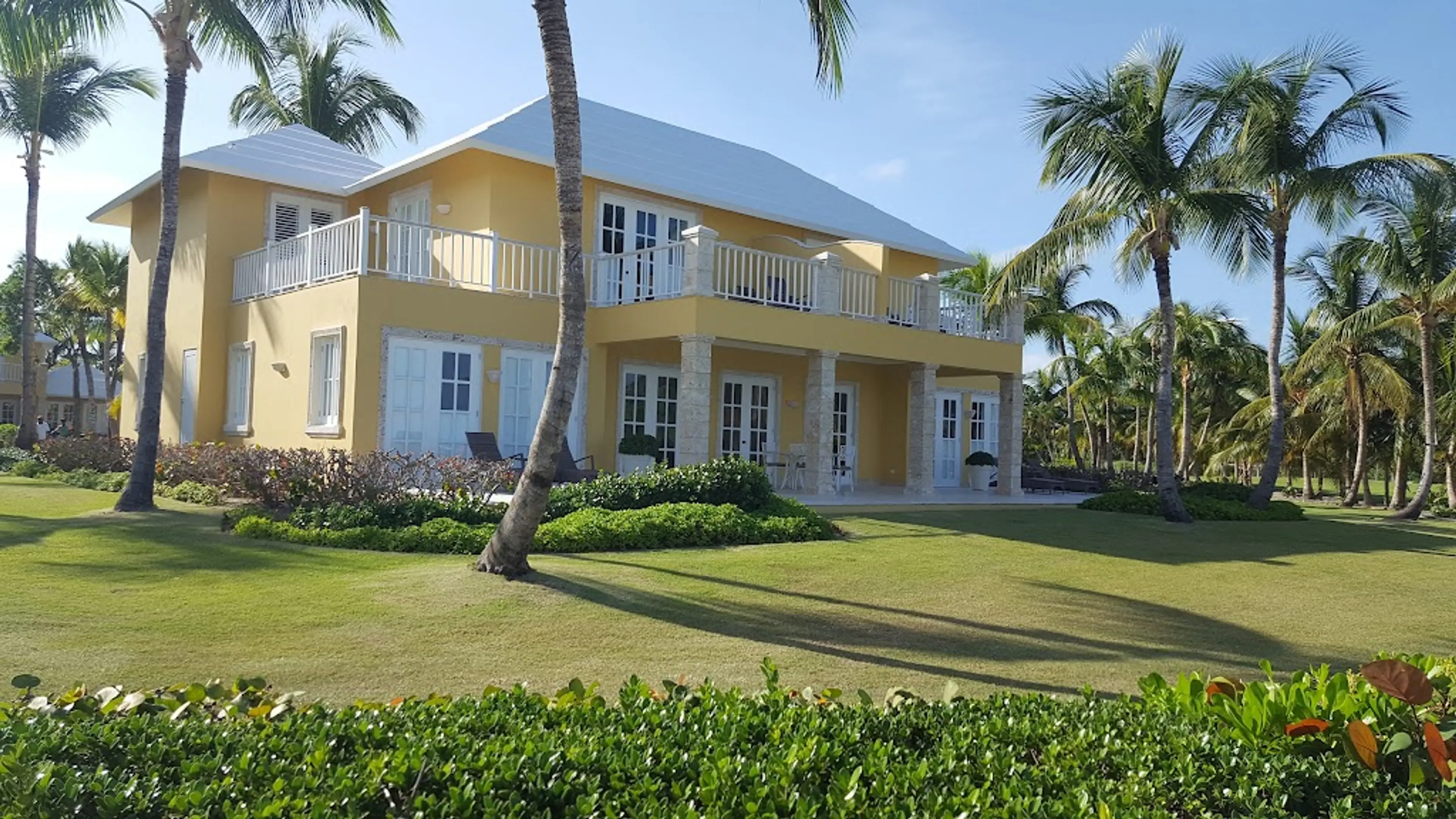
5Punta Cana Ecological Foundation
A non-profit organization dedicated to preserving and enhancing the natural resources of Punta Cana through sustainable practices and environmental education.

6Manati Park
A theme park that offers visitors the opportunity to see a variety of animals, watch performances, and learn about the Dominican Republic's indigenous Taino culture.
Local Food and Drinks (12)

La Bandera
A traditional Dominican dish that consists of rice, red beans, and meat (usually chicken, beef, pork, or fish). Its name translates to 'The Flag' in English, symbolizing its importance in Dominican culture.

Mofongo
A popular dish made from fried plantains that are mashed together with garlic, broth, and olive oil. It's often filled with meat or seafood and is a must-try for any food lover visiting Punta Cana.

Sancocho
A hearty stew made with a variety of meats and root vegetables. It's considered a national dish and is often served during special occasions or family gatherings.

Mangú
A traditional breakfast dish made from mashed plantains, usually served with fried eggs, salami, and cheese. It's a staple in Dominican cuisine and a great way to start the day in Punta Cana.

Chimichurri
A Dominican-style burger made with seasoned ground beef and topped with cabbage, tomatoes, and a special sauce. Despite sharing a name with the Argentine sauce, they are quite different.

Chicharrón
Fried pork rinds that are a popular snack in Punta Cana. They're crispy, salty, and perfect for munching on while exploring the local sights.

Tostones
Fried plantain slices that are a common side dish in Dominican cuisine. They're crispy on the outside, soft on the inside, and often served with a garlic dipping sauce.

Morir Soñando
A refreshing drink made from milk, sugar, and freshly squeezed orange juice. Its name translates to 'Die Dreaming' in English, reflecting its delicious taste.

Mamajuana
A traditional Dominican drink made from rum, red wine, honey, and a mix of local herbs and spices. It's often served as a digestive after meals and is believed to have medicinal properties.

Presidente Beer
The most popular beer in the Dominican Republic. It's a light, crisp pilsner that's perfect for sipping on a hot day in Punta Cana.

Yaniqueque
A type of fried bread that's a popular street food in Punta Cana. It's crispy, flaky, and often served with a side of salsa for dipping.
Queso de Hoja
A traditional Dominican cheese that's made by hand and often served with bread or crackers. It has a unique, tangy flavor that's a must-try for any cheese lover visiting Punta Cana.
Best time to visit
The best time to visit Punta Cana, Dominican Republic is from March to May, right after the peak winter season. During these months, the weather is warm, the crowds are smaller, and the hotel rates are more affordable. However, if you're a fan of whale watching, you might want to consider visiting between January and March. Punta Cana is also a popular destination for spring break, so expect larger crowds and higher prices in late February to early April.
How to get around
Rental Car
Renting a car is a popular option for getting around Punta Cana. It provides the freedom to explore the area at your own pace. However, it's important to note that driving in the Dominican Republic can be challenging due to different traffic rules and road conditions. International driving licenses are accepted.
Taxi
Taxis are readily available in Punta Cana. They are a convenient way to get around, especially for short distances. However, it's recommended to agree on the fare before starting the journey to avoid any confusion later.
Public Bus
Public buses, known as "guaguas", are a cheap way to get around Punta Cana. They run frequently and cover most parts of the city. However, they can be crowded and may not have air conditioning.
Private Transfer
Private transfers are a comfortable and convenient way to get around Punta Cana. They can be booked in advance and the driver will pick you up from your location at the agreed time. This is a great option for those who prefer not to drive or use public transport.
Motorcycle Taxi
Motorcycle taxis, known as "motoconchos", are a quick and cheap way to get around Punta Cana. However, they are not the safest option and are not recommended for long distances or for those with large luggage.
Ridesharing
Ridesharing services, such as Uber, are available in Punta Cana. They offer a convenient and often cheaper alternative to traditional taxis. You can book a ride using the app on your smartphone and track the driver's location in real time.
Bicycle Rental
Renting a bicycle is a fun and eco-friendly way to explore Punta Cana. There are several rental shops in the city offering a range of bicycles to suit different levels of fitness and experience.
Pedestrian
Walking is a great way to explore Punta Cana, especially the beach areas. However, it's not the most practical option for long distances or in the heat of the day.
Tour Operator
Tour operators offer guided tours around Punta Cana. This is a great way to see the sights and learn about the local culture and history without the hassle of navigating on your own.
Important information
Currency DOP
Time zoneUTC-4
Driving sideRight
Emergency phone911
Drinking waterOpt for bottled water
Power sockets
Voltage120 V
Things to know about Punta Cana, Dominican Republic as a first time visitor
1
The official language of the Dominican Republic is Spanish, so it would be helpful to learn a few basic phrases.
2
The Dominican Peso (DOP) is the official currency, but US dollars are widely accepted in tourist areas.
3
Credit cards are accepted in most places, but it's always a good idea to have some cash on hand for smaller vendors or in case of emergencies.
4
The Dominican Republic operates on Atlantic Standard Time, which is four hours behind Coordinated Universal Time (UTC-4).
5
The country has a tropical climate, with average temperatures ranging from 77°F to 88°F (25°C to 31°C).
6
The hurricane season runs from June to November, with the peak period from August to October.
7
Tap water is not safe to drink in the Dominican Republic. Always drink bottled water.
8
Public transportation is not very reliable. It's better to rent a car or use taxis.
9
Tipping is customary in the Dominican Republic. A 10% service charge is often added to your bill, but it's customary to leave an additional tip.
10
The Dominican Republic has a 220V power supply, so you may need a converter for your electronic devices.
11
The country has a high rate of traffic accidents, so always be cautious when driving or crossing the street.
12
The Dominican Republic is generally safe for tourists, but petty theft can occur. Always keep an eye on your belongings.
13
The sun can be very strong, especially between 11am and 3pm. Always wear sunscreen and a hat.
14
The Dominican Republic has a strict dress code in public places. Beachwear is only acceptable on the beach.
15
The country has a vibrant nightlife, but it's important to stay in well-lit areas and avoid walking alone at night.
16
The Dominican Republic has a rich cultural heritage. Respect local customs and traditions.
17
Healthcare facilities in Punta Cana are good, but it's recommended to have travel insurance that covers medical expenses.
18
The Dominican Republic has strict laws against drugs. Possession, use, or trafficking of illegal drugs is a serious crime.
19
The country has a high rate of mosquito-borne diseases. Always use insect repellent and wear long sleeves and pants at dawn and dusk.
20
Always check the latest travel advisories before your trip to the Dominican Republic.
Basic Spanish to know as a first time visitor
English phrase | Native phrase | Pronunciation | When to use it |
|---|---|---|---|
Hello | Hola | O-la | Greeting someone |
Goodbye | Adiós | A-dee-os | Leaving someone |
Please | Por favor | Por fa-vor | Making a request |
Thank you | Gracias | Gra-see-as | Expressing gratitude |
Yes | Sí | See | Agreeing with someone |
No | No | No | Disagreeing with someone |
Excuse me | Perdón | Per-don | Getting someone's attention |
I'm sorry | Lo siento | Lo see-en-to | Apologizing |
Do you speak English? | ¿Hablas inglés? | Ab-las in-gles | Asking if someone speaks English |
I don't understand | No entiendo | No en-tee-en-do | Expressing confusion |
Where is...? | ¿Dónde está...? | Don-de es-ta | Asking for directions |
Bathroom | Baño | Ban-yo | Looking for a restroom |
Help | Ayuda | A-yu-da | In case of emergency |
Food | Comida | Co-mee-da | Looking for a place to eat |
Water | Agua | A-gua | Asking for water |
Beer | Cerveza | Ser-ve-za | Ordering a beer |
Wine | Vino | Vee-no | Ordering wine |
How much does it cost? | ¿Cuánto cuesta? | Kwan-to kwes-ta | Asking for the price |
Can I have the bill, please? | ¿Puedo tener la cuenta, por favor? | Pwe-do te-ner la kwen-ta, por fa-vor | Asking for the bill at a restaurant |
Good night | Buenas noches | Bwe-nas no-ches | Saying goodnight |
Packing List
Clothing
Swimwear
Beach cover-up
Lightweight clothing
Underwear
Socks
Sleepwear
Flip-flops
Comfortable walking shoes
Hat for sun protection
Sunglasses
Light jacket or sweater for cooler evenings
Toiletries
Travel-size shampoo and conditioner
Body wash or soap
Toothbrush and toothpaste
Deodorant
Razor and shaving cream
Sunscreen
After-sun lotion or aloe vera
Insect repellent
Makeup and makeup remover
Hairbrush or comb
Travel-size laundry detergent
Travel documents and essentials
Passport
Driver's license or ID card
Credit and debit cards
Cash in local currency
Travel insurance documents
Hotel and car rental reservations
Emergency contact information
Electronics and gadgets
Smartphone
Charger for smartphone
Headphones
Camera
Charger for camera
Travel adapter
Portable power bank
Miscellaneous items
Beach bag
Beach towel
Reusable water bottle
Snacks for travel
Books or e-reader for beach reading
Travel pillow and blanket
Earplugs and eye mask
First aid kit
Travel-size umbrella
Weather Conditions
Punta Cana, located in the Dominican Republic, is a tropical paradise that enjoys warm weather throughout the year. However, it's important to consider the weather patterns when planning your visit to make the most of your trip. The average temperature in Punta Cana ranges between 75°F (24°C) and 86°F (30°C) throughout the year. This makes it an ideal destination for beach lovers. However, remember to pack your sunscreen as the sun can be quite strong, especially between 10 am and 2 pm. The region experiences a rainy season from May to November, with August to November being the peak hurricane season. While it doesn't mean you should avoid these months entirely, it's worth noting that you may encounter some rainy days. The showers are usually brief and heavy, often clearing up quickly. If you're planning to visit during these months, it's advisable to pack a light rain jacket or umbrella. The driest months are from December to April, making it a popular time for tourists to visit. During this period, the weather is generally sunny and less humid, providing perfect conditions for outdoor activities and exploring the beautiful beaches. Regardless of when you visit, the weather in Punta Cana can be unpredictable. It's always a good idea to check the forecast before your trip and pack accordingly. Also, consider travel insurance that covers weather-related disruptions, particularly if you're planning to visit during hurricane season. Finally, remember to stay hydrated and protect yourself from the sun. The tropical climate can be deceptively intense, even when it doesn't feel overly hot. Enjoy your trip to Punta Cana!
| Month | Hi / Lo (°C) | Weather Overview |
|---|---|---|
January | 29° / 22° | January is one of the cooler months in Punta Cana, but still warm with average temperatures ranging from 22 to 29 degrees Celsius. It's a great time to visit if you prefer milder weather. |
February | 29° / 22° | February is similar to January with temperatures ranging from 22 to 29 degrees Celsius. It's the peak of the dry season, so it's less likely to rain. |
March | 30° / 22° | March sees a slight increase in temperature, ranging from 22 to 30 degrees Celsius. It's a popular time for spring break visitors. |
April | 30° / 23° | April is a warm month with temperatures between 23 and 30 degrees Celsius. It's the end of the dry season, so there's a slight chance of rain. |
May | 31° / 24° | May marks the beginning of the rainy season with temperatures from 24 to 31 degrees Celsius. However, showers are usually brief and followed by sunshine. |
June | 31° / 25° | June is a hot month with temperatures ranging from 25 to 31 degrees Celsius. It's the start of the hurricane season, but storms are rare. |
July | 31° / 25° | July is similar to June with temperatures between 25 and 31 degrees Celsius. It's a popular time for summer vacationers. |
August | 31° / 25° | August is one of the hottest months with temperatures from 25 to 31 degrees Celsius. It's also in the middle of the hurricane season, so there's a chance of storms. |
September | 31° / 25° | September is a hot month with temperatures ranging from 25 to 31 degrees Celsius. It's the peak of the hurricane season, so there's a higher chance of storms. |
October | 31° / 24° | October sees a slight decrease in temperature, ranging from 24 to 31 degrees Celsius. It's the end of the hurricane season, but there's still a chance of rain. |
November | 30° / 23° | November is a cooler month with temperatures between 23 and 30 degrees Celsius. It's the start of the dry season, so it's less likely to rain. |
December | 29° / 22° | December is one of the cooler months in Punta Cana, with temperatures ranging from 22 to 29 degrees Celsius. It's a popular time for holiday visitors. |
Did you know?
Places near by Punta Cana, Dominican Republic

Higuey
Known for its historical and cultural significance, particularly the Basilica La Altagracia.

La Romana
A city known for its resorts, golfing, and beautiful beaches.

Altos de Chavón
A re-creation of a Mediterranean style European village located atop the Chavón River.

Bayahibe
A small fishing village known for its beautiful beaches and crystal clear waters.

Saona Island
A tropical island located in a national park with beautiful beaches and abundant wildlife. Accessible only by boat.

Santo Domingo
The capital of the Dominican Republic, known for its rich history and vibrant culture.

Jarabacoa
Known as the 'City of Eternal Spring' for its pleasant weather, and for its beautiful waterfalls and mountains.

Samaná
Known for its beautiful beaches, waterfalls, mountains and sighting of humpback whales during certain seasons.

Puerto Plata
Known for its beaches, resorts and historical fortresses.

Santiago de los Caballeros
The second largest city in the Dominican Republic known for its tobacco and rum production.